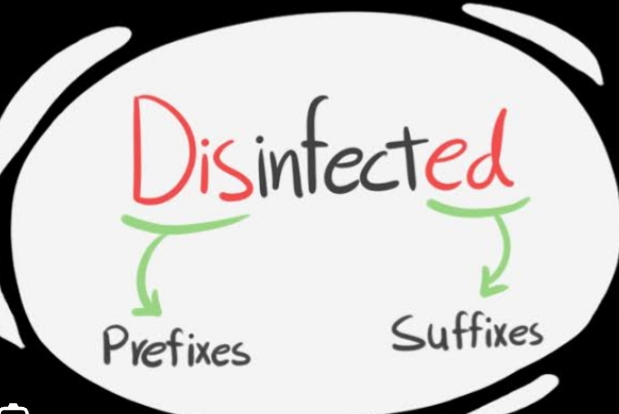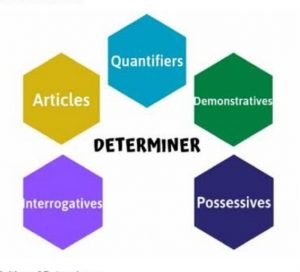
Illustration Credit: Langeek
In the previous lesson, we examined blending as one of the ways we form words. Today, we will talk about affixes. Affixes help to develop vocabulary when you know the different kinds; usage, and how to identify them.
What are Affixes?
Affixes are usually a few letters added to a root word to
change its meaning or grammatical properties. There are different types of affixes
For instance, adding the affix mal– before administration = maladministration, which means “bad” or “inefficient ” or “mismanagement”
They can also be used in grammar, such as adding ‘ed’ at the end of a verb to create the simple past tense of adding an ‘s’ to the end of a noun to make it plural.
The root word appear means to “become seen,” but the affix dis–
negates the meaning of the word it is attached to, so disappear means “become hidden.”
The affix –ance turns verbs into nouns, so the final meaning
of disappearance becomes “the
act of becoming hidden.”
The different types of affixes are Prefixes, Suffixes, Clippings and Acronyms
How do you identify affixes?
Affixes cannot be used alone but must be attached to a root word. If you used -ance on its own without a root word, it would be
incorrect and make no sense.
Affixes are used to make communication faster and
more efficient. Instead of saying “He does not depend on anyone,” you can simply add the affixes in– and –ent to the root word depend and make the word independent. Saying “He is independent” is much faster and clearer than “He does not depend on anyone.”
Prefixes
Prefixes are affixes that come at the beginning of a
word, before a root word. Sometimes they are added to a word to change its meaning, such as legal and illegal. Other times, they combine with other affixes to create new words, such as adding the prefix
bio– to the affix –ology to create biology.
Unlike other affixes, prefixes sometimes use a hyphen.
Specifically, the prefixes all-, self-, and ex– (when used to mean former)
always use hyphens.
The following are prefixes that negate the root words:
dis- (not) engage disengage
il – (not) illogical illogical
ir- (no) regular irrregular
imm- (not) possible impossible
Non- (not) profit non-profit
mal- (bad) administration maladministration
Mis- (wrong) management mismanagement
contra-(against) diction contradiction
anti- (against) rust anti-rust
Apart from negative prefixes, the English language is rich in other prefixes like the ones listed below
PREFIX ROOT NEWWORD
Ante before antenatal
Anthro man anthropology
Amphi round amphitheatre
aqua water aquarium
audio hear audiometer
auto self automatic
idios own idiosyncrasy
macro large macroeconomics
micro small microorganism
peri around periscope
Tele far teleguide
tri three tricycle
Suffixes
Suffixes are affixes that come at the end of a word, after the root word. Unlike prefixes, which mostly change a word’s meaning, suffixes are used for grammar purposes:
Verb conjugation (play = played)
Plurality (box = boxes)
Possession (Bimpe = Bimpe’s)
Reflexive pronouns (him = himself)
Comparatives and superlatives (wide = wider, widest)
Changing word class (swim = swimmer)
Clipping
Clipping or shortening deletes part of a word:
Although most clippings delete the end of the word, in some, the beginning is removed.
omnibus = bus,
Veteran, veterinarian =vet;
Laboratory, Labrador =lab.
Microphone=mic
Airplane = plane,
Cooperative= coop
In a few, only the middle remains, such as flu = influenza
ACRONYMS
Acronyms are formed from the initial letters of other words and pronounced as a word.
Many acronyms are created so that they form an existing word with a relevant meaning:
CAPTCHA: (Completely Automated Public Turing test to tell Computers and Humans Apart),
AIDS: (acquired immune deficiency syndrome),
BOGO: buy one, get one (free)
SCUBA: (self-contained underwater breathing apparatus),
PIN: (personal identification number),
RAM: (random access memory),
NOUN: (National Open University of Nigeria),
BASIC: (Beginner’s All-purpose Symbolic Instruction Code)
SARS (severe acute respiratory syndrome),
Clipping and acronyms are productive and efficient because they reduce long phrases and words.




















